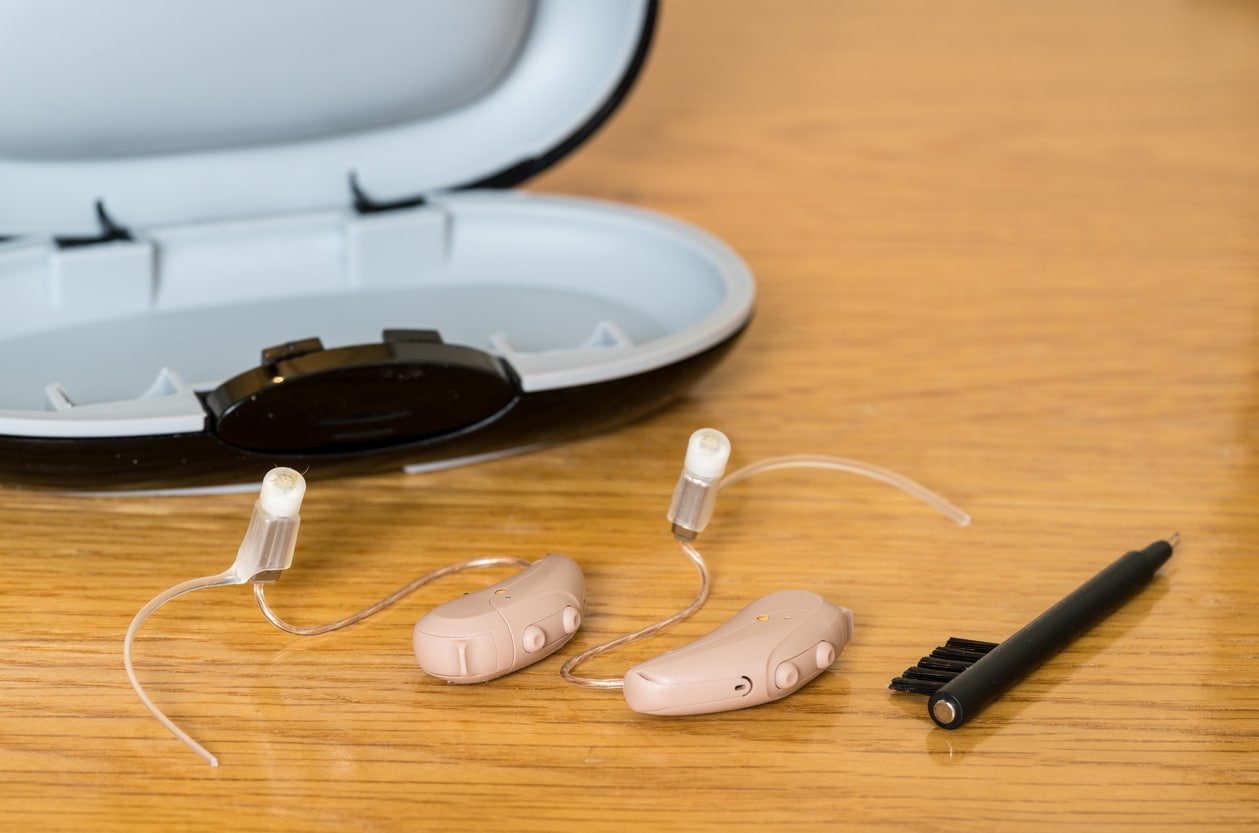Your hearing aids spend most of their time in the cool, moist environment your ear creates. It’s a perfect environment for bacteria and fungus that could cause ear irritation and infection. That’s why it’s important to maintain strong cleaning routines for your hearing aids to prevent infection.
Types of Infections

About seven percent of adults over the age of 45 use hearing aids, but any age is susceptible to an ear infection. Wearing hearing aids alone will not cause an ear infection, but improper care and use could make you more susceptible to getting one. There are a couple of ways this could occur. If your hearing aid fits improperly, it could cause small cuts or irritations that could get infected, resulting in an ear infection.
Other types of ear infections to be aware of include:
- Otitis media: Otitis media is an ear infection occurring in the middle ear. It occurs when fluid becomes trapped behind the eardrum and usually occurs after a cold or allergies cause congestion.
- Otitis externa: Otitis externa is an ear infection that occurs in the outer ear. Moisture trapped in the outer ear can breed bacteria, resulting in an ear infection. This type of ear infection is also referred to as Swimmer’s ear.
Proper Hearing Aid Care
The best way to avoid any type of irritation or infection related to your hearing aids is to maintain proper cleaning and care. It’s important to use the right tools and disinfect your hearing aids regularly.
Consider these tips when creating your hearing aid care routines:
- Clean regularly and use the right tools: Earwax, dirt and debris can accumulate in your hearing aids creating, an atmosphere prone to bacteria growth and impacting your hearing aid’s long-term functionality. You can use a hearing aid cleaning kit pick and brush to clear ear wax and other debris from the devices. Wash and dry your hands before removing them, and disinfect the surfaces with a non-alcohol-based cleaner.
- Keep them dry: Regularly remove them after physical activity, such as jogs at Brookfield Park, or times when they may have been exposed to moisture or humidity, and dry them thoroughly. Moisture can cause buildup, leading to bacteria or fungal growth.
- Store them in a safe place: Build a habit of removing them at night, cleaning and disinfecting them and then storing them in a safe, dry area. Do not store them in your bathroom, as the humidity is bad for them. You may also purchase a hearing aid dehumidifier, which can help dry them out.
- Professional cleaning: You may consider seeing a hearing specialist on a routine basis to have your hearing aids professionally cleaned. This could be beneficial for those with dexterity issues who may struggle with the delicate touch needed for cleaning hearing aids and provides a thorough clean.
While hearing aids themselves do not cause ear infections, it is possible that improper cleaning could create an environment that would result in an ear infection. Proper cleaning also extends the life of your hearing aid.
To learn how to properly clean your hearing aids or to learn about the benefits of hearing aids, schedule an appointment with Augusta – Aiken ENT & Allergy today.